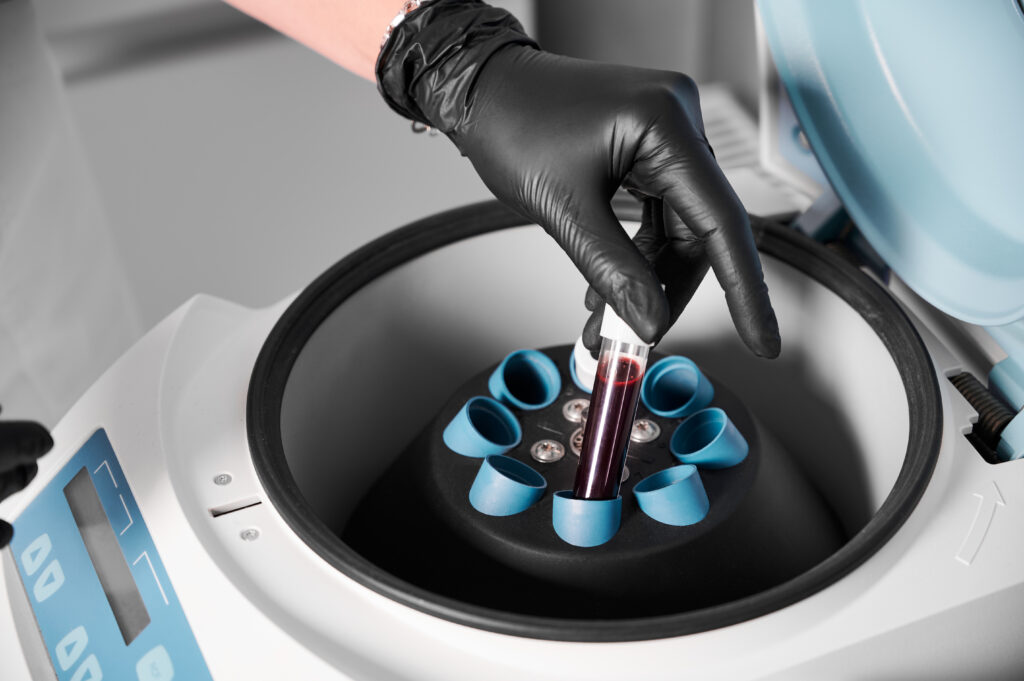
benchtop centrifuge
Benchtop centrifuges are indispensable tools in modern laboratories, performing critical functions in the separation, purification, and analysis of biological, chemical, and clinical samples. These compact yet powerful machines generate centrifugal forces far exceeding gravity, enabling precise isolation of cellular components, macromolecules, and particulate matter. To achieve consistent, reliable laboratory results, meticulous care and maintenance of benchtop centrifuges are non-negotiable.
Understanding the Importance of Benchtop Centrifuge Maintenance
A benchtop centrifuge comprises sensitive mechanical, electrical, and rotor components. Neglecting routine care can result in rotor corrosion, imbalance, or total system failure, which not only compromises experimental results but also poses safety risks. Proper maintenance ensures:
-
Longevity of the centrifuge and its components
-
Consistent and precise sample separation
-
Prevention of contamination between samples
-
Reduced operational downtime and repair costs
Laboratory managers and technicians must adhere to a structured maintenance protocol, encompassing daily, weekly, and preventive servicing schedules.
Daily Cleaning and Lubrication: Keeping Your Centrifuge Pristine
Daily maintenance is crucial to prevent accumulation of debris, chemical residues, and biohazardous materials. Follow these key steps:
Routine Wipe-Down
After each use, clean the centrifuge’s interior and exterior surfaces with a soft sponge, warm water, and a mild detergent. Avoid products containing chlorine or strong acids, which can damage the protective coatings on the rotor and centrifuge chamber.
Lubrication of Moving Components
Apply manufacturer-recommended lubricants to bucket grooves, O-rings, and seals. Proper lubrication reduces friction, ensures smooth rotor movement, and extends component life.
Disinfection Protocols
For labs handling infectious or hazardous materials, disinfect the centrifuge regularly. Approved disinfectants or spill kits should be used to sanitize the chamber and rotors to prevent contamination.
Weekly and Monthly Checks: Preventive Actions for Rotor Health
In addition to daily cleaning, weekly and monthly inspections are essential for early detection of wear and corrosion:
-
Visual Inspection for Residue and Corrosion: Examine rotors and rotor buckets for pitting, discoloration, or chemical buildup. Early identification of corrosion prevents catastrophic rotor failure.
-
Thorough Cleaning of Rotor Components: Use a mild detergent and a soft brush to remove residual materials. After cleaning, dry all components completely to prevent moisture-induced damage.
-
Check Seals and O-Rings: Inspect rubber seals and O-rings for cracks, brittleness, or misalignment. Replace damaged parts immediately to maintain vacuum integrity and rotor stability.
Preventive Maintenance by Certified Technicians
Scheduling regular servicing with certified technicians is critical. Preventive maintenance typically includes:
-
Electrical system diagnostics to ensure motor efficiency and accurate speed control
-
Internal component cleaning including bearings, wiring, and sensors
-
Calibration and performance testing for precision in sample separation
-
Damage assessment to identify cracks, metal fatigue, or rotor stress before catastrophic failure
Technicians also provide safety checks, ensuring that all centrifuge models comply with laboratory standards and manufacturer specifications.
Rotor Care and Safety: Protecting the Heart of the Centrifuge
The rotor is the most critical component of any benchtop centrifuge, responsible for generating the centrifugal force that separates samples. Rotors vary based on laboratory needs:
-
Swinging-Bucket Rotors: Ideal for separating large-volume samples at moderate speeds, providing gentle handling for sensitive specimens.
-
Fixed-Angle Rotors: Perfect for pelleting small volumes or performing differential separations, offering higher-speed performance with minimal sample disturbance.
Common Rotor Risks
Rotors are vulnerable to stress corrosion, mechanical fatigue, and chemical damage. Even minor surface imperfections, such as chips in protective coatings, can escalate under high-speed centrifugation, causing serious malfunctions.
Preventing Rotor Damage
-
Rinse After Use: Clean rotors with water or manufacturer-approved solutions to remove sample residues.
-
Disinfect When Necessary: Autoclaving or UV treatment is recommended when handling infectious agents.
-
Protect Small Components: Lubricate O-rings and clean lid threads with a lint-free cloth to prevent debris buildup and maintain secure closures.
Benchtop Centrifuge Models and Their Applications
Modern benchtop centrifuges cater to diverse laboratory needs. Examples include:
-
C4000 NXT: High-speed rotor for rapid processing of various sample types; ideal for clinical and research labs requiring efficiency.
-
L400 NXT: Gentle, low-speed centrifugation for delicate or sensitive biological specimens.
-
M15K: High-capacity centrifuge with advanced safety features, balancing speed and sample throughput for high-demand laboratories.
All models feature user-friendly interfaces, automatic balancing systems, and compact designs, making them suitable for space-limited laboratory benches while ensuring maximum reliability.
Routine Rotor Inspections: Ensuring Safety and Accuracy
Rotors should undergo frequent inspections by trained technicians to detect stress corrosion, metal fatigue, or other hidden defects. Key steps include:
-
Assessing Rotor Integrity: Determining if the rotor can continue safe operation or requires repair/replacement.
-
Early Intervention: Addressing minor damage before it impacts performance, preventing costly downtime.
-
Documentation: Maintaining inspection logs for quality assurance and laboratory compliance.
Enhancing Laboratory Efficiency with Regular Maintenance
Regular care of benchtop centrifuges ensures laboratories operate at peak efficiency, safeguarding research integrity. A comprehensive maintenance program includes:
-
Daily cleaning and lubrication to prevent residue buildup and ensure smooth operation
-
Weekly and monthly inspections to catch early signs of wear and tear
-
Periodic preventive maintenance by certified technicians for optimal performance and safety
Investing in proper centrifuge maintenance not only extends equipment lifespan but also reduces long-term operational costs. Laboratories achieve reliable results consistently, enabling research teams to focus on discovery rather than troubleshooting equipment failures.
Conclusion: Commitment to Reliable Laboratory Performance
Benchtop centrifuges are essential for precise sample separation, and their performance depends heavily on careful maintenance and operational best practices. By adhering to daily, weekly, and preventive maintenance routines, laboratories ensure accuracy, safety, and longevity of these vital instruments. Proper rotor care, routine inspections, and professional servicing are fundamental to maintaining excellence in research, diagnostics, and clinical workflows.
Elevate your laboratory’s efficiency and research outcomes with well-maintained, precision-engineered benchtop centrifuges. Prioritizing routine maintenance and professional care guarantees reliable, consistent results for all sample types, from sensitive biological materials to high-volume clinical specimens.
Related Blogs: Essential Benchtop Centrifuge Care and Maintenance for Reliable Laboratory Results





